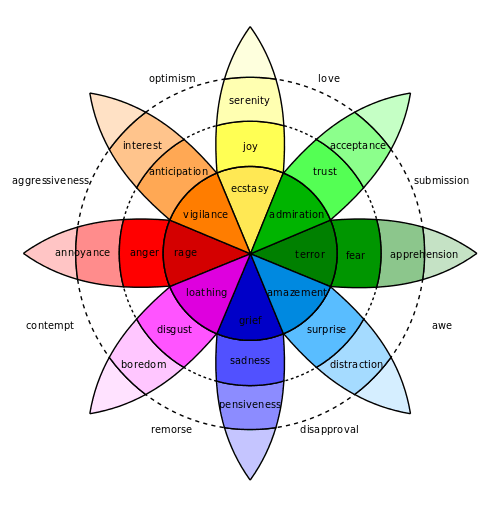Diligence

Diligence is steadfast application, assiduousness and industry; the virtue of hard work. It is one of the seven heavenly virtues.
Diligent behavior is indicative of a work ethic; a belief that work is good in itself.[1]
In students
Bernard et al.[2] suggest diligence in a student is defined as an effort he or she puts towards balanced and holistic development in mental, physical, social and spiritual dimensions. They find diligence in students is correlated with academic performance. This is especially found in younger students. The support of parents and educators encourages students to be diligent.[3] Other factors which encourage diligence in students include motivation, discipline, concentration, responsibility and devotedness.[2]
In Buddhism
The last words of the Buddha were "Strive on with diligence." Diligence is an integral part of all Buddhist teaching, and is considered the fourth of the pāramitā. In Mahayana tradition diligence is the third pāramitā and the first which is said to lead to liberation. The practice of diligence will bring an increase of qualities.[4]
In Christianity
Diligence, in Christianity, is the effort to do one's part, while keeping faith and reliance in God.[5] In other words, diligence and faith are two sides of a mystery. One doesn’t know how, despite one's effort, it all works out. But diligence when combined with faith assures spiritual success. Diligence as one of seven virtues describes thoroughness, completeness and persistence of an action, particularly in matters of faith.[6]
We want each of you to show this same diligence to the very end, in order to make your hope sure. We do not want you to become lazy, but to imitate those who through faith and patience inherit what has been promised.— The Bible, [7]
In Islam
That man can have nothing but what he strives for; That (the fruit of) his striving will soon come in sight: Then will he be rewarded with a reward complete.— The Quran, [8]
In Hinduism
According to Brian Hatcher, the precepts of Hinduism require a human being to discover and live a dharmic life. To live a dharmic life, one must live with right intention with diligence, and with concern for well being of others.[9][10] The Hindus celebrate Diwali, a festival of lights, where Goddess Lakshmi (also called Goddess Sri) is worshipped; the goddess symbolizes thorough preparation, being organized, diligent and honest.[11] These characteristics are considered by Hindus as essential for success and Shubh Labh (ethical profit).[12]
Who so performeth – diligent, content – the work allotted him, whatever it be, lays hold of perfectness!— The Bhagavad-Gita 18:45, [13]
Due diligence
Due diligence is the necessary amount of diligence required in a professional activity to avoid being negligent. This commonly arises in major acquisitions where the legal principle of caveat emptor ("let the buyer beware") requires the purchaser to make a diligent survey of the property or service.[14]
See also
References
- ↑ Keith E. Thurley; Sek Hong Ng (1996), "The Concept of the Work Ethic", Work and society, Hong Kong University Press, pp. 136–137, ISBN 978-962-209-391-1
- 1 2 H Bernard; DD Drake; JJ Pace (1996), "Student-Centered Educational Reform: The Impact of Parental and Educator Support of Student Diligence" (PDF), School Community Journal
- ↑ Christon G Arthur (2002), Student Diligence and Student Diligence Support: Predictors of Academic Success. (PDF)
- ↑ Je Gampopa (1994), Gems of Dharma, Jewels of Freedom, Altea Publishing, p. 163, ISBN 978-0-9524555-0-9
- ↑ How do we live the Christian Life? Archived November 4, 2013, at the Wayback Machine. David Sper (2002)
- ↑ Andreas J. Kšstenberger (2011), Excellence: The Character of God and the Pursuit of Scholarly Virtue, ISBN 978-1-58134-910-8, pp 88–90
- ↑ The Holy Bible: New International Version. International Bible Society, (1973), THE LETTER OF PAUL TO THE HEBREWS 6:11–12
- ↑ An-Najm 53:39–41
- ↑ Brian Hatcher (2008), Bourgeois Hinduism or Faith of the Modern Vedantists, Oxford University Press, ISBN 978-0-19-532608-6, page 80–82
- ↑ Hatcher, B. A. (2007). Bourgeois Vedānta: The Colonial Roots of Middle-class Hinduism. Journal of the American Academy of Religion, 75(2), 298–323.
- ↑ HINDUISM Stephen Bigger (1990), University of Worcester, UK
- ↑ Sharma, S. (2002). Corporate Rishi Leadership Model: An Indian Model for Corporate Development & Ethical Leadership. Human Resource Development in Asia: Trends & Challenges', edited by Udai Pareek, Aahad M. Osman-Gani, S. Ramanarayan & TV Rao, Oxford & IBH, New Delhi, pp 291–296
- ↑ Bhagwad Gita, Chapter 18 Edwin Arnold & Vyasa (2006)
- ↑ N.J. Margetson, "What is meant by "due diligence"?", The system of liability of articles III and IV of the Hague (Visby) Rules, pp. 43 et seq.
